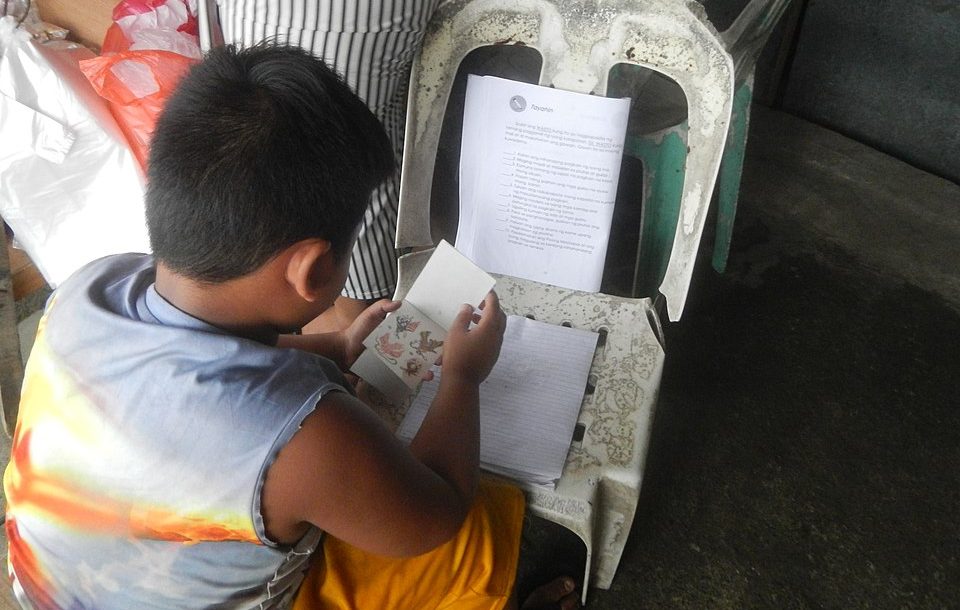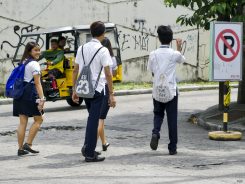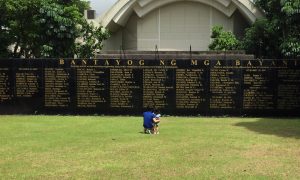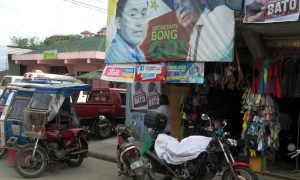Due to one of the longest and strictest lockdowns in the world, limited in-person teaching in the Philippines only resumed in late 2021, 20 months since the start of pandemic restrictions in March 2020. More than 27 million children have been out of school. The country’s Department of Education (DepEd) was only able to allow 100 public schools to take part in its pilot run of face-to-face classes in November 2021. Only five thousand students went back to the physical classroom. However, with the current wave of COVID-19 cases due to the Omicron variant still being managed, in-person classes have been disrupted again. The Philippine national government has no choice but to continue to rely on remote learning. This has set the Philippines back in attaining UN Sustainable Development Goal (SDG) 4: Quality Education which aims to achieve inclusive and equitable quality education and to promote lifelong educational opportunities for all.
In her 24 January 2022 message for International Day of Education (IDE), UNESCO Director-General Audrey Azoulay called for a new “social contract” for education. Her message asked for past injustices be repaired and for digital inclusion and equity in response to an educational crisis exacerbated by the COVID-19 pandemic.
The Basic Educational-Learning Continuity Plan (BE-LCP) has been the DepEd’s flagship response since the beginning of the pandemic. Aiming to deliver quality education in the “new normal” setting, the BE-LCP involves the distribution of self-learning modules integrated with alternative learning modalities such as online, blended, television-based, and radio-based instructions. This programme has safeguarded not just students, but also teachers and staff, from contracting COVID-19.
Nonetheless, the national government’s earnest efforts to deliver inclusive quality education were met with challenges. We found evidence of these challenges in a series of 38 interviews with public servants, NGO workers, and community leaders in urban poor areas in Metro Manila and Bulacan. Our respondents reported on both the observable impacts of COVID-19, and the government and community responses to the pandemic. The key concerns our informants pointed out regarding basic education included: interrelated issues of accessing the internet, availability of gadgets, and proficiency in using technology; low quality instruction and supervision from guardians, most often stay-at-home mothers, due to their own limited educational attainment; and lack of physical and psychological space conducive to learning. However, the pandemic did not trigger these issues for those living in urban poor communities; it just made them worse.
To respond to these perennial challenges, DepEd Secretary Leonor Briones encouraged education experts and stakeholders to a collective effort in designing future learning spaces in her speech during the DepEd’s celebration of the IDE this year. DepEd took its cue from UNESCO’s Futures of Education project which aimed “to rethink education and shape the future”. The UNESCO initiative proposed to view education as “a new social contract” – a shared global effort to broaden the horizon of learning so that knowledge can genuinely shape humanity and the environment in an increasingly complex and fast-changing world.
In line with this call to create new opportunities, one inspiring and innovative community response to the pandemic which an interviewee reported to us stood out: a tutoring programme in an urban poor mission station in the Diocese of Caloocan. A community organiser related how their chapel initiated a program to help young children by providing free one-on-one tutorial classes handled by the community’s own scholars. This project has been running for two years. Elementary students are paired with senior high school and college students. These student-tutors guide their respective tutees during two-hour sessions twice a week, with focus on English, Maths, and Science. They also cover other subjects if there is time. This school year, the programme is catering for around 70 pupils with more than 30 volunteers.
Many Filipino students don't have computers or internet access for online learning during COVID-19. On "subaltern social media strategies" for demanding equitable access.
Filipino students use “padungog-dungog” to resist educational inequality
As an incentive for the student-tutors, they can join another community project called “Laptop for Work”. As part of the programme, the tutors themselves have to render community service so that they can keep the laptop provided to them to guide their tutees. Thus far the mission station has provided 29 laptops for their scholars. Other tutors are still working towards ownership of their device. The tutors have the option to community service, such as helping with the liturgy or volunteering in the feeding program or community pantries. Most tutors, however, opted to conduct tutorial classes.
This simple yet ingenious example addresses all three challenges to the remote learning plan of the national government: technology access, knowledge expertise, and a conducive learning environment. The model community-tutoring programme has provided the electronic devices and Internet access that pupils need to access their online modules. They also receive personalised academic guidance from a competent student tutor, and a space conducive to study within the chapel. More importantly, this mentorship programme involves the entire community: not just the pupil-tutor pair, but also their parents, other volunteers who prepare the study area and snacks, and the generous benefactors. Thus, this program has not only been an effective solution to persistent learning issues during the pandemic but also a concrete example of how education can in fact be a “social contract”.
Schemes such as the one outlined above may go some way to addressing the inequalities in educational access that have been worsened by the pandemic. However, there is also the danger that some students may lose educational aspiration or never return to education. Because of this, education departments need to future proof their policies by paying attention to SDG 4-related Targets 4.3 (Adult Education) and 4.4 (Skills for Work). To an extent, a “second chance” to learn has been addressed by DepEd’s adult-centred Alternative Learning System (ALS), though studies show that this program has also been impacted by the pandemic. Nevertheless, educational attainment is crucial, not just for the employment prospects of the individual but also for development prospects of the country as a whole.
More practical attention also needs to be given to digital inclusion, that is, affordable and accessible internet access and the availability of devices. Many of our interviewees told us that even when school children were able to access online lessons they had to share devices with siblings. For many families, the only way to access online learning resources was by using mobile phones. Some commendable efforts have been made by local government agencies, charities, and schools to distribute devices but inevitably they were limited.
These are some practical ways to respond to the crisis in education yet there is still a lot more reimagining and actual transformational work on learning that has to be done. In a globalised world, it takes not just a village but the whole world to raise every child. Only then can we celebrate an inclusive international day of quality education.
 Facebook
Facebook  Twitter
Twitter  Soundcloud
Soundcloud  Youtube
Youtube  Rss
Rss 



